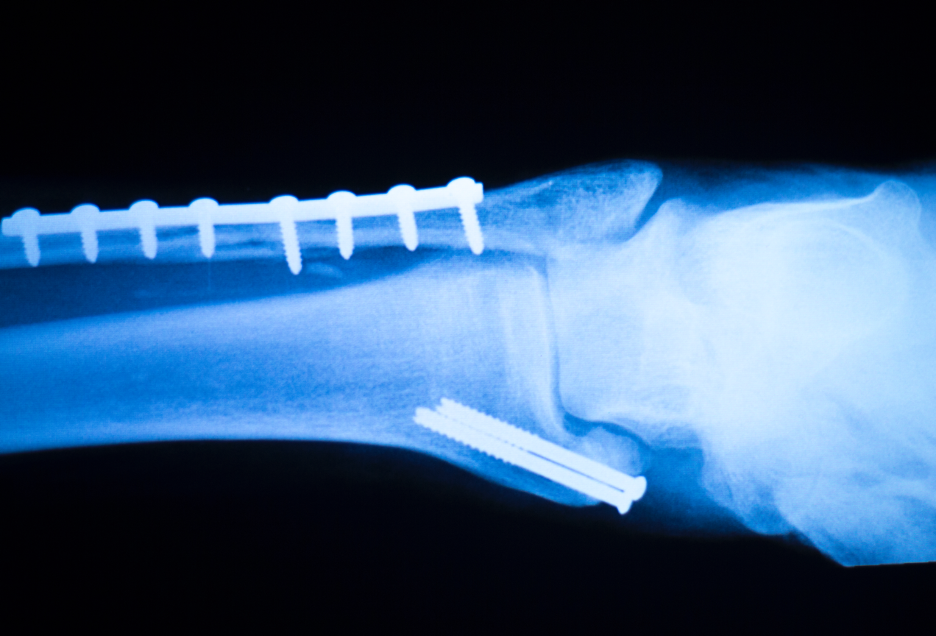Orthopedic medicine has witnessed significant advancements over the last several decades, particularly in the treatment of bone fractures. One such breakthrough is the utilization of titanium plates in the healing process.
These remarkable plates have revolutionized orthopedic surgery, providing numerous benefits for patients with broken bones. Below, this medical grade titanium supplier in Philadelphia, Pennsylvania is going to discuss some of the key things you should know about the role of titanium plates in bone healing.
How Do Titanium Plates Help Bones Heal?
When a bone breaks, it requires stabilization to facilitate proper healing. Titanium plates play a crucial role in this process by providing the necessary support and stability. These plates are meticulously designed to match the shape and size of the affected bone, ensuring a precise fit. The biocompatible nature of titanium allows for seamless integration with the bone, reducing the risk of complications and promoting faster healing.
Upon implantation, the titanium plate acts as an internal splint, holding the fractured bone in place. This stabilization minimizes movement and prevents further injury, allowing the body’s natural healing mechanisms to take effect.
Over time, the bone begins to regenerate and remodel around the plate, ultimately restoring its strength and function. The remarkable properties of titanium, such as its strength, durability, and resistance to corrosion, make it an ideal material for this purpose.
The Advantages of Using Titanium Plates for Bone Fractures
The use of titanium plates in orthopedic medicine offers several advantages over traditional methods of bone fracture treatment. When processed by a medical grade titanium supplier in Philadelphia, Pennsylvania, titanium is an incredibly strong metal that can withstand the stress and strain placed upon it. This ensures long-term stability and prevents the need for additional surgeries or interventions. Additionally, titanium is lightweight, which reduces the burden on the patient and allows for a more comfortable recovery period.
Another significant advantage of titanium plates is their biocompatibility. The human body readily accepts titanium, minimizing the risk of rejection or adverse reactions. This biocompatibility also means that titanium plates can remain in the body indefinitely without causing harm. Unlike other materials that may require removal after a certain period, titanium plates can provide lasting support and stability without the need for further interventions.
The Surgical Procedure for Implanting Titanium Plates
Implanting titanium plates for bone fractures is a complex surgical procedure that requires the expertise of an orthopedic surgeon. The process typically begins with a thorough assessment of the fracture, including imaging studies to determine the precise location and severity. Once the surgeon has a comprehensive understanding of the fracture, they will create an individualized treatment plan tailored to the patient’s specific needs.
During the surgery, the orthopedic surgeon makes an incision near the fracture site to access the bone. The fractured segments are then carefully realigned, and the titanium plate is positioned over the fracture site. Special screws are used to secure the plate to the bone, providing stability and support. The incision is then closed, and the patient is monitored closely during the recovery period to ensure proper healing.
Types of Titanium Plates Used in Orthopedic Surgery
There are various types of titanium plates available for orthopedic surgery, each designed to address specific fracture patterns and anatomical considerations. The selection of the appropriate plate depends on factors such as the location of the fracture, the type of bone involved, and the patient’s individual characteristics.
Some common types of plates that medical grade titanium suppliers in Philadelphia, Pennsylvania produce include:
- Compression Plates: These plates are used to compress and stabilize fractured bones, promoting alignment and healing.
- Locking Plates: Locking plates provide enhanced stability by utilizing screws that lock into the plate, minimizing movement at the fracture site.
- Reconstruction Plates: These plates are used for complex fractures that require extensive reconstruction or bone grafting.
- Buttress Plates: Buttress plates provide additional support to bones that are at risk of collapsing or fracturing under pressure.
The choice of titanium plate is made by the orthopedic surgeon based on the specific needs of the patient and the characteristics of the fracture.
Looking for a Medical Grade Titanium Supplier in Philadelphia, Pennsylvania?
Are you looking to order titanium plates that meet the required specifications for orthopedic surgery? If so, and if you’re looking for the premier medical grade titanium supplier in Philadelphia, Pennsylvania, Supra Alloys is the company to call. With their extensive experience and commitment to quality, we provide top-notch titanium plates that meet the highest industry standards.
We can help you decide on the right types of plates for your specific requirements, ensuring optimal outcomes for your patients. Contact us today at 1-888-647-8772 to get started.


